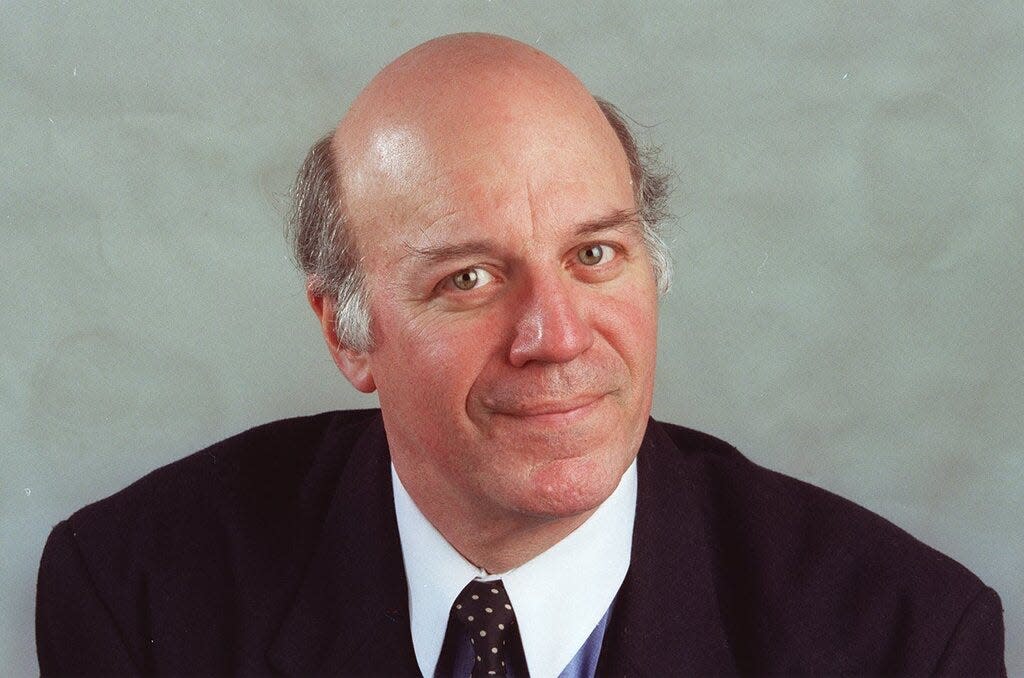Opinion/Brown: Children need our patience as they navigate gender and identity

Editor's note: This is the second of two parts.
Recently, I met with a group of 19 gay and transgender kids from grades seven to 11. A freshman spoke first, having identified as bisexual by middle school and coming out in the summer between seventh and eighth grade. It became clear that many of these students had parents who are experiencing varying degrees of discomfort.
I suggested at one point that if a child is going to transition, family and friends have to transition too, whether they are comfortable with it or not. Parents need empathy too.
Lawrence Brown: 'It's dangerous to be alive.' Listening to transgender voices here on Cape Cod
No one's physical safety had been reported at risk here on Cape. This is not to say that it's been easy for these kids. One sophomore revealed her identity to a few close friends, only to have someone put it all on social media. Name-calling and slurs followed.
“Will you kiss your girlfriend in front of us?” some kids asked.
She was 12 years old at the time.
Some of our young people discover a profound discomfort with their physical selves — with their gender identification — years before they become aware of sexuality itself. Often, they're so young they have no vocabulary with which they can discuss or explain the feelings they're having. That would suggest that neither peer pressure nor media influence nor any kind of “indoctrination” can explain what's happening here.
'War' on LGBTQ existence: 8 ways the record onslaught of 650 bills targets the community
Why are we hearing so much more about this than we did several decades ago? We have political voices proposing that this whole trans phenomenon is being pushed on our children as part of some liberal agenda. But after teaching kids for 42 years, I think primarily two factors are at play.
There may always have been more people who wanted to be gay or felt that their souls had been put into bodies that didn't somehow match how they saw themselves — but for most of history, they would have had to keep their mouths shut or risk being killed.
We also have to remember that the teenage years are intrinsically difficult and that many of our children going through it feel uncomfortable in their own skins. It's entirely possible that for some of these kids, the idea that they might be born into the wrong body offers an explanation for the general discomfort they might be feeling.
Related: Is all the anger, fury really about transgender rights? Maybe not.
Even if we say, for the sake of argument, that for some young people alternative sexuality or sexual identification might be a phase, that does not change the urgency and intensity with which young people feel the things they're feeling. This won’t be the first time our children serve as unwilling canaries in the coal mine. When they stop singing, we should pay attention lest the air we all require becomes unbreathable.
Many of the kids wanted to avoid labels altogether. Not a single student in the room with me was undergoing any hormonal transition treatments let alone surgeries. What these kids seemed to need most at this point in their young lives was that the rest of us be willing to tolerate a certain amount of gender ambiguity — to give them an extended period of safety and empathy while they figure themselves out.
Environment: Mapping possible Pilgrim wastewater paths in Cape Cod Bay. Why it might not be that easy.
Most of our group knew about their nonconformity by the age of 12. One high school junior explained it this way. There was no sudden epiphany, just having always had this pervasive feeling of being different. No one could find exactly the words to describe it. How do you explain this to people when you're little? You have no vocabulary adequate for the task.
One student remembers being insulted and called names before being old enough to have any clarity on sexual matters. Many adults imagine that because kids are online all the time, they're more sophisticated about things than they really are. Kids can be cruel sometimes. How does a 10-year-old respond if somebody in the hallway asks if they’re gay?
A 10th grader shared a childhood experience of looking at the mirror and feeling “wrong”… ugly and stupid, other kids kept saying. Only by eighth grade did it become clear that the underlying discomfort involved gender identification. The issue of suicide came up.
Outer Cape: Provincetown faults criteria set by Cape Cod National Seashore for dune shack bid process
“We’re going to lose some wonderful people,” a girl said.
I came away from our conversation impressed, as I usually am, with how articulate and trusting our kids are. I think what they’re asking for — more than even tolerance — is patience. Theirs is the first generation to live in a society that allows people to question their own sexuality and to decide for themselves how they want to express it. That makes it even more complicated while they're growing up because it's offering them a kind of freedom that's rarely been available to human beings.
While they sort this out, they deserve the chance to do it without being used as cannon fodder for the culture wars. Meanwhile, it does not threaten the happiness of the majority to permit the felicity of this tiny few.
Lawrence Brown is a columnist for the Cape Cod Times. Email him at columnresponse@gmail.com
Stay connected with the Cape Cod news that matters. Sign up for our free newsletters.
This article originally appeared on Cape Cod Times: Opinion: Cape kids discuss gender and identity in quest for tolerance

